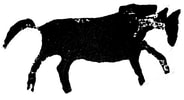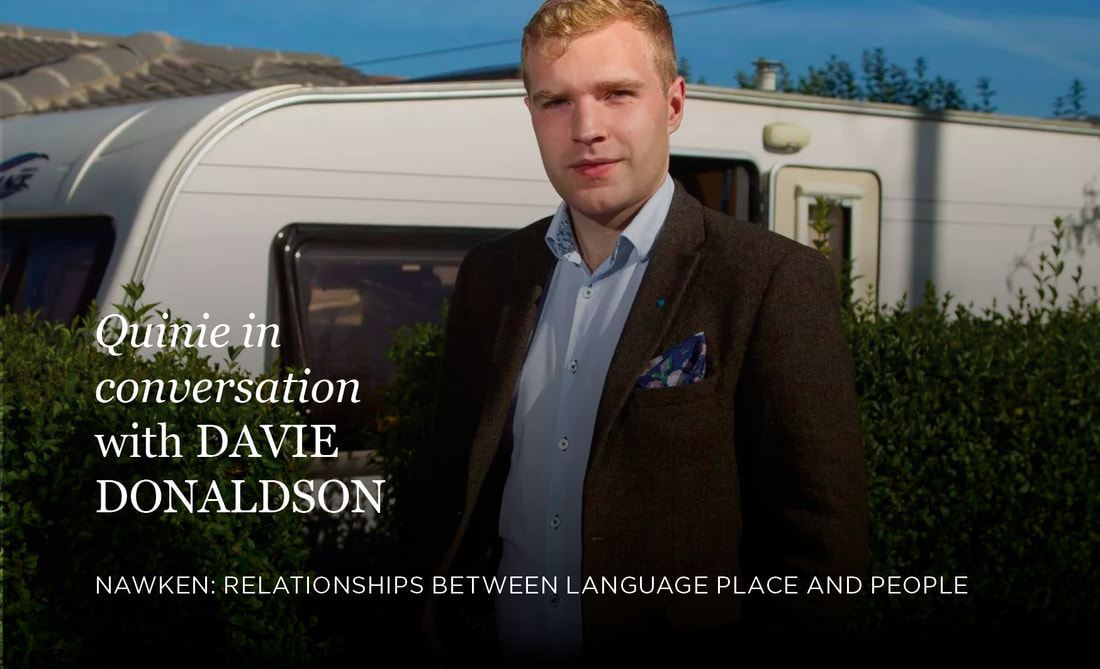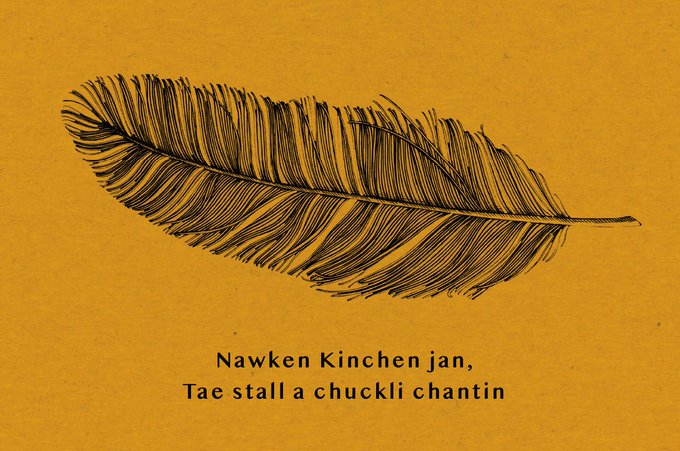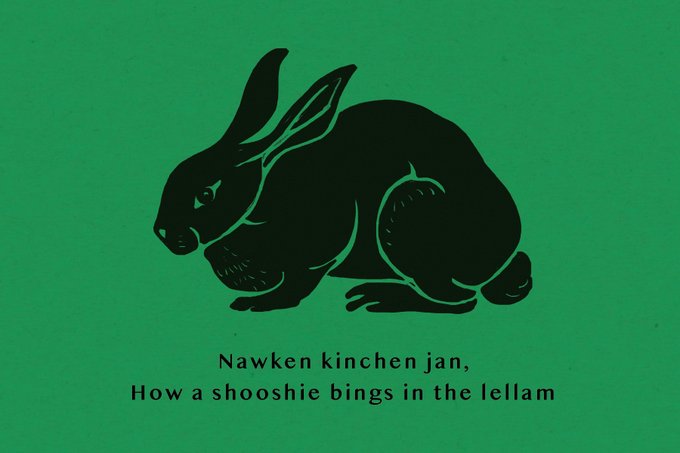|
Davie Donaldson is Nawken (Scottish Traveller). In 2021 Davie and myself had a chat about the current situation for Scottish Travelers in Scotland today. We chatted a little bit about language, and how important the cultural artefacts of song and storytelling are to people's sense of place. Crucially Davie outlines how intrinsically linked a place is to these kinds of cultural outputs that we then see in archives or collected by settled people, or institutions.
I define as a Scottish Traveller or a Nawken (pronounced Naa Ken) in our language. Our community is broadly understood as indigenous to Scotland. We are a minority community,a recognised ethnic minority, but still a very seldom understood community with very little of our culture, and our way of life, being fully understood by the state. We've existed in Scotland for at least 900 years, with many claiming we go back a lot further than that. And during that time, we've played a crucial role in contributing to Scottish society, and to Scotland's economy. In almost every story that makes up Scotland's fabric, you can find Travellers within that. And that's everything from influencing Robert Burns right on to the fantastic oral traditions that we kept alive, particularly the ballads and some of the Gaelic tradition. Names for Travellers include Ceàrdannan which is Gaelic for craftsman - so we are people who are crafting things, right? So things like baskets, or umbrella makers even or, you know, people who made things. We did a lot of stuff that might be now be deemed heritage crafts, but to this day Travellers are still craftsmen, we're still people who make things. So we've now moved on from making baskets and making corn spins. We're making driveways, fixing roofs and making gardens look even more beautiful. A few stereotypical trades there, but traditional trades nonetheless! The key thing for us is being a nomadic people, and that can be nostalgically nomadic. And by that I mean living through the story of generations that came before us who were roadside people who lived on the road. Perhaps even if we were settled now, we've still got that in our mindset, and making up our own identities. The ability to travel is still a very, very important pillar of our identity for many young Travellers. Many continue to travel throughout Scotland. And the ability to take our economy, to take our trade, and move it from place to place is crucial. So that's a little bit about us, we have our own languages, of course, Beurla-reagaird, and the Cant, which is most commonly spoken and the one I speak myself, but yeah, we're still a community that is very alive and well in Scotland. That said, we do face a number of socio economic inequalities. And so I spent a lot of my time emphasising the importance of recognising my culture and my community, but also raising the importance of challenging inequalities we continue to face.
What kind of intersections are there between different Travelling people, different nomadic people? You’ve got Show People, the Roma community, Irish Traveller, all these different identities. I think sometimes people find it hard to get their heads around.
Totally, it can become complex. I mean, when you have communities that are very similar in many ways, over a few 100 years of migration that can become very complex to try and disentangle the communities from each other. Broadly speaking, Show People are distinct from Gypsy Roma and Traveller communities, as an occupational Traveller group. Many would attest to Show People being regarded as an ethnic minority. While they don't yet have that status, I know some Show People are kind of pushing for that. A lot of Showman families come from the Industrial Revolution. Some of those families were originally Romani people, were originally Travellers, and all they done was diversified their trade, and they perhaps moved into Circus or show work. We do have a lot of research going right back to the 1600s. At the very early fairs we have examples of what we would now call Show People. It'd be disingenuous of me to talk to that narrative as I'm not a Show person. What I do know is that Travellers and Show people have had a very close relationship for a very long time. My granny, her people were horse dealers, and travelled around the country, but part of what they done when they travelled to Appleby to sell their horses, was they would sell the horses at Appleby and then they would buy China in Cumbria. And they would, when they were coming back up the road again, they would hawk it round all the crofts. Because folk in the crofts couldn't get that type of china because then very few settled people travelled as far as that back then. Now when she would hawk the china round, she would also sell it to show people, and show people would use it as prizes, for their fairs and the rides and things and their games. So there's very close economical links, and because of that a lot of Show people married Travellers, and vice versa. Now, Irish Travellers indigenous to Ireland, the earliest records of them going right back to the fifth century, and they are termed the 'na lucht siúil' or walking people. Again, a lot of intermarriage. Gypsies and Roma are slightly different kettle of fish. And the reason for that is, by and large, all Gypsy communities and Roma communities go back to the exact same place. And so unlike Scottish Travellers and Irish Travellers that are regarded as distinct communities right back to their origin, English Gypsies go back to the same place as Roma originally, and that's vastly considered to be the Punjab region of northern India. When the Roma left India a long, long time ago, they travelled up through Eastern Europe settling as they went and that's why you've got large pockets of Roma in places like Bulgaria, Romania. Of course Roma do not only come from Romania has nothing to do with the term Romania, Roma comes from the term Rom, a very old Roma word meaning man. They travelled through Eastern Europe through Scandinavia, and then of course arrived in Scotland, around 1490. We think the first recorded instance of what we now would call Gypsy, then was Egyptian, happened in Stirling in 1502,or four, I think. Now, the word Gypsy only comes into being in Western Europe. The reason for that is when Roma first arrived in Scotland and other Western European countries, they claimed to be Christian pilgrims from Egypt. And because of that, they thought they would be treated better by Christian Kings, and of course they were. So in the first records of a Roma and Gypsy people, in Western Europe, they're classed as Egyptians, which eventually became Gypsies. While theres a lot of mixing and intermarriage, we're all quite distinct in our own ways. And there's uniquenesses to each. One of the key uniqueness as you can find for Scottish Travellers is that ballad tradition, is that story tradition, which harkens back to a Scotland that perhaps didn't have the same relationship with Travellers, as it does now. That harkens back to that, you know, almost nostalgic time where Travellers were treated with great, great respect and were welcomed into communities.
Davie, could you tell us a little bit about language, because obviously that is very influential in the songs. A lot of the songs that I'm singing, I think of as being in Scots, but I know that there's again intersections between what is Scots and, and what is Cant or Beurla-reagaird or other languages.
Cant isn't our original language. And what I mean by that is, you know, you had a pre-existing, as we were then called, Tinker class who lived in pre Celtic society. A lot of academics would back this up, and it's my personal belief that this is the timeline of events. Now that craftsman people, the Tinklers or the Ceàrdannan or whatever the hell you want to call them, when they were cuttin aboot, they had their own language. We don't entirely know what that language is, it's my belief and the belief of some others that that language was closely linked to Beurla-reagaird. Beurla-reagaird is a language which has a similar grammatical construct to Gaelic. I've been told by Gaelic speakers that they don't understand it. So it cannot be understood by Gaelic people. But it is mostly spoken today by Elder Travellers or Travellers on the west coast of Scotland or the highlands, or traditionally Gaelic speaking places. I'm not a speaker of it, I know one expression, I know how to say it's raining. The way you say it's raining translates to 'the water is coming on to me'. So It's a gaelic construct. Whereas to say it in Cant is much more literal, it means ‘look at the rain’ or ‘look at the waterfall’. Many Travellers have spoken about the two languages - Sheila Stewart, for example, she speaks about the Cant being the market language that her family would use. And then they would use their own words, she doesn't tell us what the language is, but she says we would use our own words when they came home. So she makes the example of the word Gadgie which in the Cant, and a lot of Scottish slang now, means man. Now in the Stewart family, they wouldn't use the word Gadgie at home, they would use the word Kul. So you know, there's a lot of these examples of words in the Cant that are duel and it's my belief that that's leftover words from our original language, whatever that was, that's been left over into our language and because of that, you've got some families, who use some words for some things and other words for other things. So the Cants a very diverse language. And anyone that says they can speak the whole comprehensive Cant fluently is lying, because every family has certain words they use and certain words they don't use and meaning they attribute to some words. And so because of that, you know, we are quite diverse linguistically.
I think a lot of what I thought was Scots, I'm now learning is Cant. A lot of the Scots that I would actually use more like, because I'm east coast, like shan (mean, cruel) and chore (steal). Seemingly a lot of them are Cant.
There's an expression that we use. It's like 'oh my oh my', but it's 'Shana Shanice'. Not entirely sure what translates to. But that's where we think Shan comes from like 'oh my oh something really bad', right? Different families translate it to different things. Chore, comes from chorel, which is actually Romani, and chorel originates in Sanskrit in northern India. So you know, it's bled through into Cant because, of course, the Cant, I should have said, is thought to have came around in the 1500s, after the migration of Romani to Scotland. Travellers, young Travellers, tend to use words that only you'd find in older settled people, like wireless instead of radio, right, or courtin instead of dating. So you can still see that happening. And no doubt in a few 100 years, people will look and say 'courtin' - what a Traveller word. But it's not - there's a lot of mishmash when it comes to linguistics! That's why, when it comes to tracing origins with linguistics, it can be very, very difficult. But with a community that is so oral, we don't have a lot of tangible artefacts, or, you know, physical documents that talk about us, it can be very, very difficult to date where the Travellers come from. And that's why there's so much controversy around it. What we can say, of course, is that there's one document from the 1100s. It explicitly talks about a nomadic class of people who we now believe were Traveller. So there is some of that, but you know, with any indigenous people, or even more so with any marginalised people, it is very difficult to get a real grip on the history. But in many ways, it doesn't really matter, because it's the felt identity to me that's most important. I think that's really interesting, the importance of what's happening now. I think, in this field, if you could call a ‘field’ from a settled person’s point of view, of exploring Traveller culture, learning about Traveller life, you can fall into a trap of spending all your time rooting around in archives. Seeing it as something that's happened in the past that has produced a bunch of artefacts, whether they're songs, stories, photographs - but they exist in the past. It's so important to keep sight of the contemporary situation for Travellers at the moment, and the way that culture plays out for them rather than constantly going back to the same archival materials. Where does the value of those archival materials sit? The value of those pieces, the value of those files, is not the item itself or the unit of culture, but it is the people and the context that it has come out of. I have this strong feeling that as an artist, musician, whatever, you shouldnt separate Traveller culture from Travellers. And you can't separate Travellers from the places that their culture is rooted in. I think we're wrongly portrayed a lot of the time, as you know, these people who sit around the fire, they're singing songs, and it's almost forced. It's not, it's very, very natural, you know, we could get sang a song as we're fishing or as you're going to get water for to wash the babies. It's much more organic than is made out. It's not bonded to a fire and that kind of scene. But one of the things that always helped me to shape my own identity as a Traveller growing up was those stories and songs. When I went to school, I had to make a very difficult decision to not tell folk that I was a Traveller at school, and that was to protect me, and my brothers and sisters from getting bullied or from getting treated differently by teachers. So for me going on the road was an escape. And there's a beautiful word in the Gaelic - from my knowledge, it can be defined in English as a longing to go somewhere where you have deep rootedness. It's almost like homesickness for somewhere. And that's how I felt whenever I thought about going on the road. It was a release, when I did go on the road, and I could hear these stories, and I could be told no, you belong. You know, at school, you may feel like you don't belong. But in these places you do belong, and your people belong to you for a long, long time. So I really gravitated to the stories and the songs whereas other Travellers gravitate towards other elements of identity. We'd see many of our ancestral camps getting blocked off. That was really hurtful, because you'd be expecting to be able to stay in these very important places, learn about belonging and ourselves. And it's like standing at the foot of a grave, because you know, that all of the stories and songs bonded to that place, if you can't access that place, they'll die. You know, so it's really emotional and really difficult. I remember I was doing a recording project. And I was recording all Travellers and songs and things. And, of course, the natural place I went to was to my Grandfather. I say this "Granddad canna record you singing a song or telling a story or something?". My Grandda is an older man now. Lives in Blairgowrie, and he lives in a wee house. And he said, “Nah laddie I don't ken no songs". What aboot a wee story? “Dinnae ken nae stories laddie" . My father was with me and I looked at him and he says I've got an idea. He says “Mon wi me da” and we go in the car, right. And we drive up through Perthshire. And there's a wee Glen in Perthshire called the Sma Glen. And it was a really important route north for all Travelling folk, but for my family, it was one of our haunting grounds, that was where we would travel north and have a lot of family memories. We were driving up the wee road and my Granddad started. And my dad said, “on you go” and I clicked my recording button on my phone, and he never stopped for two hours, right, and I just had all this recording - it was a long time. It never stopped, reelin off stories and songs, making us stop at the side of the road to look at this big rock, which was important because of this and that, make us look at this ruin of a cottage where it was burkers (body snatchers who would murder people to sell to anatomists) and all these things. And when we got back to the hoose, a says Granda, I'm not trying to be disrespectful, but I asked you if you knew any songs or stories and you said No! He said, 'those songs and stories don't belong here'. At the time I didn't quite understand, but now I recognise what he meant by that. What he meant was through the telling of these songs, and stories, in the place in which they have importance gives you the meaning, it gives you the importance of telling that song or story. Otherwise, it's pointless telling them. Essy Stewart, she talks about her grandfather taking on the mantle of the characters in his stories. Of course, what's meant by that is he was living their spirits when he was telling those stories. And so they're not just stories to be told for entertainment, but it's an actual act. A really important act of identity creation. And I think that's something that's wrongly, or rather not often, understood about Travellers, and the importance of travel. It's our travelling for many of us which is the way that we create, and we live our identities, physically, but actually mentally as well. It's not the songs themselves... it's the places in which those things belong. It's the culture in which it belongs, or the act of living our culture, such as travelling, its protecting those things that inadvertently protects the music. But if we don't do that, and if we solely focus on the words of the music or getting a recording of that music, it will still die.
I think that really highlights where the gap is - in this idea, you often see, in the ballad / song collecting / archive scene. I think it perpetuates this idea that these songs live in individual people, and those people are going to die, and then those songs will be lost. But I really like what you're saying - it's more about fighting to continue, or to reinstate, the right to be able to have access to those places in which the stories or songs live. And then that's how the next generation of people will learn the songs. Because they're contextual.
That's it. You need to be able to live in those physical places. For example, there's a camp on the west of Scotland, my family camp. And it's just beside the road, just a wee patch of grass, anyone would drive past that not thinking of it. But to my family, that was a very important camp, because it's halfway between where we would take horses or cattle or whatever it was that we were dealing with, from Mull to Lochaline, and then down, and then cross over to Fort William for the markets and things. So we continue to go there. We don't deal with horses anymore. We don't sell cows, right. But the key thing is we are reliving those ancestral memories by travelling to that space. And when we go there, we're learning these stories and we are learning these songs. Now recently, that's been dug up with trenches dug all the way down there, and we can't access it. So for the last couple of years, we've not been there. And so for the last couple years, I still know the songs and stories in my head, right? But because they've been disconnected from the landscape, a landscape that has no physical- nothing tangible - which tells you those stories, or tells you those songs in that place. They eventually lose their meaning because they're just stories about a place which you've never lived in and you've never travelled to. And so eventually, a generation stopped telling them because they've not got any meaning, you know, and then that's when stories and songs die. So it's much less about having the words to songs, and it's much more about having the meaning to them. You know, because there's a lot of collectors going about, you know, they collected the words to the songs. What they didn't do was collect why they were meaningful, what the context was. We have some great researchers who towards the end of their career did start to recognise this, started to ask more about 'when would those songs be sung? Why were they started, you know, why do you sing it? You know, why did your granny sing? Those types of questions which started to bring out the meaning. But more and more often, it's just how old is that song? You know, and once they've got the age in the words, that's it protected. Well, it's not. I've got books there of songs that were collected from Travelling folk, you know, by settled people, I don't know any of them. And to be honest, I don't think I ever will. Because they don't mean anything to me. So it's pointless me learning them. You know, it's the very reason for singing I don't think was fully appreciated when it came to collectors. And I think that unless we do start to have a society which appreciates, not only for Travellers, I am a big believer that many communities have this type of connection with the music that they sing or make, but unless we have that recognition that it's the very meaning, it's the places in which those things belong. It's the culture in which it belongs, or the act of living our culture, such as travelling, its protecting those things that inadvertently protects the music. But if we don't do that, and if we solely focus on the words of the music or getting a recording of that music, it will still die. Comments are closed.
|
AuthorWritings, reflections and an archive of research from Quinie (Josie Vallely). Archives
February 2024
|




 RSS Feed
RSS Feed
